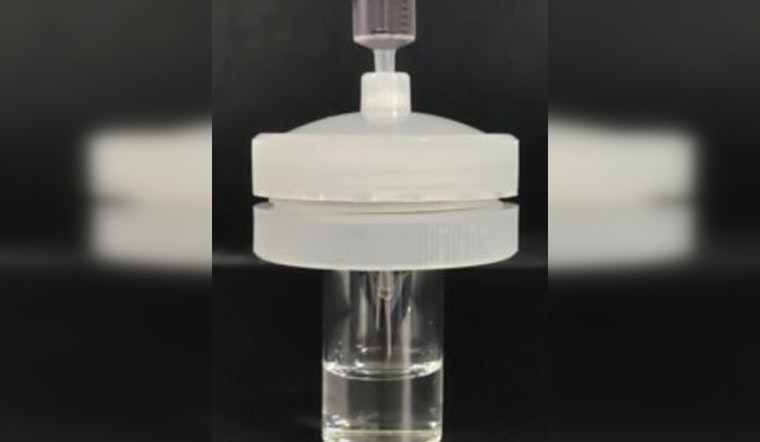
In a breakthrough that could revolutionize access to potable water, scientists from The University of Texas at Austin have developed an innovative and budget-friendly water filtration system, detailed in Nature Sustainability. The device, essentially a syringe paired with a hydrogel filter, promises to nearly eradicate tiny harmful particles from water sources that many around the globe rely on.
Water scarcity and pollution plague a significant portion of the earth’s dwellers, with around a quarter of the population striving to obtain clean drinking water, the resource shortage and contamination are persistent issues, especially in underdeveloped areas – and this new, user-friendly system may present a practical solution by allowing individuals to draw water from rivers or streams and inject it through a specialized filter for instant purification. It has been rigorously tested, showing exceptional performance even with microplastic-laden or muddy water, and in a promising move, researchers are looking to expand the technology for broader application thereby addressing a critical need mandated by the United Nations’ Sustainable Development Goals according to "Guihua Yu, a professor of materials science."
The simplicity of the filtration system lies in its design, which features a matrix of nanocellulose fibers capable of trapping contaminants while letting clean water flow through. One of the pertinent advantages this system boasts over existing methods such as filter paper and microporous membranes, which capture about 40% and 80% of particles larger than 10 nanometers respectively, this device ensnares close to 100% of these particles.
Not only is the hydrogel filter remarkably efficient, but it also champions environmental responsibility as it is biodegradable, and can be reused up to 30 times meaning it could substantially advance the mission to supply safe water without compounding waste issues; "Our system, with its high efficiency in removing diverse types of particles, offers an attractive yet practical solution in improving freshwater availability," said Guihua Yu. Looking forward the researchers envision the system scaling up to meet a wider range of water purification needs.
This development represents a critical stride towards addressing the global water crisis and could pave the way for augmented standards of health and sanitation worldwide, as Chuxin Lei, lead author and a graduate student working in Yu’s lab, noted "There is an urgent need for simple, universal and efficient materials and devices for purifying particle-contaminated water, which should be able to help people around the world obtain clean water." With international collaboration bolstering the project's strength, the filter's scope promises growth, offering a glimmer of hope for those in dire need of the essential life-sustaining resource that is clean water.









